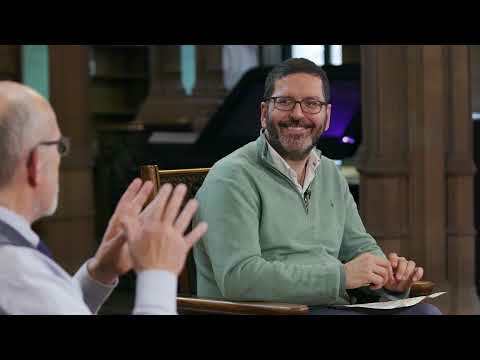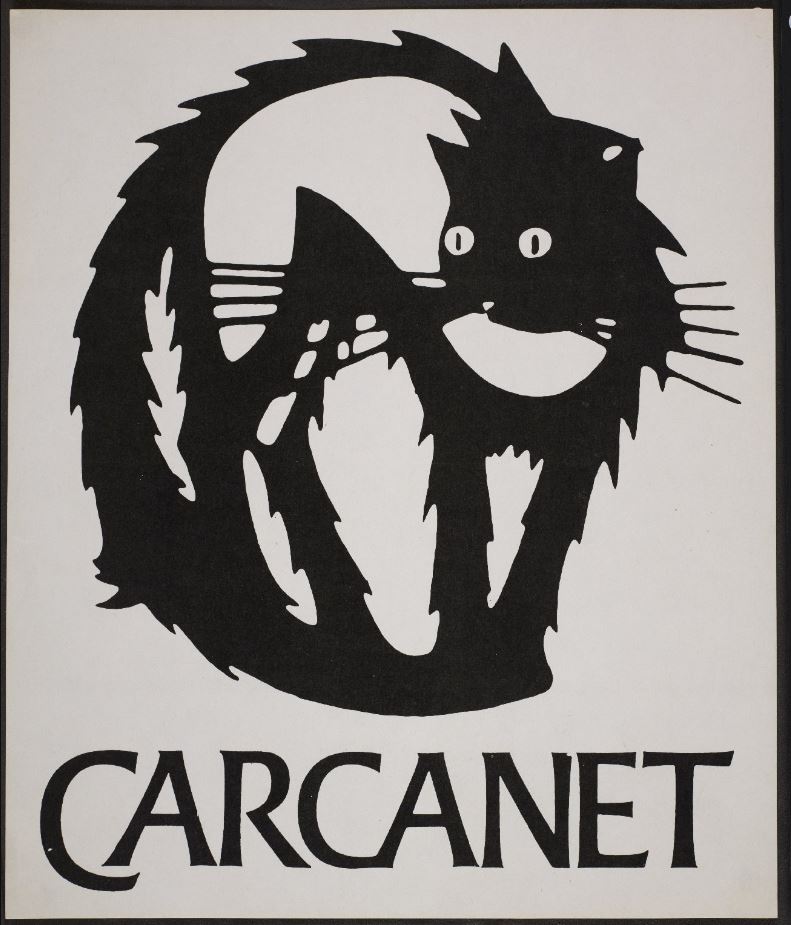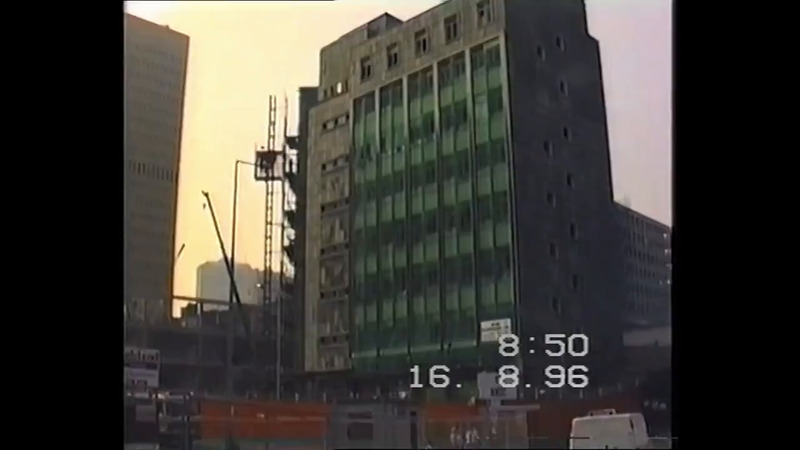Carcanet
Item set
- Title
- Carcanet
Items
-
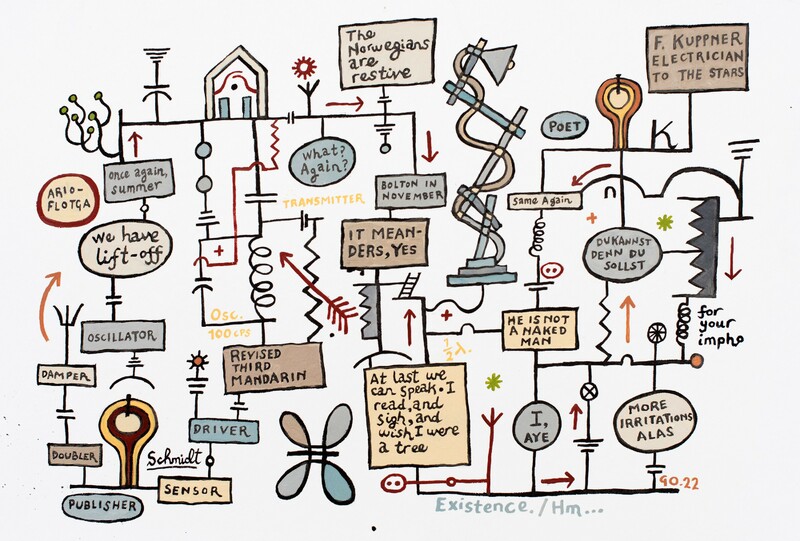 Artistic Representation by Gregory O'Brien Gregory O’Brien writes of his piece: sometime in the mid-1990s I discovered the poetry of Frank Kuppner. It was Robyn Marsack who pointed me in said direction. And so begins this merry dance. I remember being impressed when I was later informed—it must have been by Robyn—that Frank Kuppner worked as an electrician. Or maybe he was an electrical engineer? In recent years, I have been unable to find any mention of those occupations in Kuppner’s numerous biographical notes on-line, and I am now wondering if I invented (or perhaps misheard) this biographical fact. That said, I have decided to persist with it. My unwrapping of Frank Kuppner’s email correspondence with Michael Schmidt was prefaced by a note from Jessica Smith, at the John Rylands Library, informing me that much of this particular poet-publisher interaction had in fact taken place over the telephone or by letter. This I did not take as an impediment, figuring I was on the look-out for something fragmentary rather than a grand, roiling literary continuum. Also, bearing in mind Kuppner’s real/imagined working life amongst electrical and electronic gadgetry, I found his perceived preference for earlier communication systems something of a relief. A blizzard of emails was the last thing I wanted to be heading out into. In formulating a ‘response’ to the correspondence I resorted to that stock-and-trade of the electrical profession, the circuit diagram. Three years ago, upon my father’s death, I inherited a hardbound, handwritten workbook dating back to World War II, much of which he had spent as a wireless mechanic, working on Sunderland flying boats, based at the appropriately named Mechanics Bay on Auckland’s Waitemata Harbour. Like my imagined version of the ‘electrician’ Kuppner, my father had—for a time, at least—a substantial knowledge of electrical systems. (That said, by the end of the 20th century, he was totally flummoxed by the new-fangledness of the world and its technologies. He struggled to master the CD-player, let alone the home computer. The hundreds of scrupulously hand-drawn circuit-diagrams contained in the mid-century workbook had, it would seem, done nothing to prepare him for the digital age.) My Kuppner/Schmidt circuit diagram appropriates phrases from both sides of the e-conversation. You’ll have trouble guessing who said what. As in the best conversations, both figures are amply present in what the other says/writes. As a rebuke to the technology of laptop and internet, I have installed a reading lamp—that staple of readers and writers, publishers and poets—strategically near the middle of the ‘diagram’. I will leave it to Kuppner and Schmidt to ascertain whether this formulation of writerly/editorial energies is in anyway viable, let along representative. I think, like all diagrams, it is really only just a part of a much, much bigger diagram. Gregory O’Brien is an artist, curator and writer, and designer of covers for Carcanet’s journal, PN Review. He has edited numerous anthologies and art catalogues, and written extensively about New Zealand culture. O’Brien’s work has been exhibited across New Zealand, and he has also illustrated the work of many New Zealand writers.
Artistic Representation by Gregory O'Brien Gregory O’Brien writes of his piece: sometime in the mid-1990s I discovered the poetry of Frank Kuppner. It was Robyn Marsack who pointed me in said direction. And so begins this merry dance. I remember being impressed when I was later informed—it must have been by Robyn—that Frank Kuppner worked as an electrician. Or maybe he was an electrical engineer? In recent years, I have been unable to find any mention of those occupations in Kuppner’s numerous biographical notes on-line, and I am now wondering if I invented (or perhaps misheard) this biographical fact. That said, I have decided to persist with it. My unwrapping of Frank Kuppner’s email correspondence with Michael Schmidt was prefaced by a note from Jessica Smith, at the John Rylands Library, informing me that much of this particular poet-publisher interaction had in fact taken place over the telephone or by letter. This I did not take as an impediment, figuring I was on the look-out for something fragmentary rather than a grand, roiling literary continuum. Also, bearing in mind Kuppner’s real/imagined working life amongst electrical and electronic gadgetry, I found his perceived preference for earlier communication systems something of a relief. A blizzard of emails was the last thing I wanted to be heading out into. In formulating a ‘response’ to the correspondence I resorted to that stock-and-trade of the electrical profession, the circuit diagram. Three years ago, upon my father’s death, I inherited a hardbound, handwritten workbook dating back to World War II, much of which he had spent as a wireless mechanic, working on Sunderland flying boats, based at the appropriately named Mechanics Bay on Auckland’s Waitemata Harbour. Like my imagined version of the ‘electrician’ Kuppner, my father had—for a time, at least—a substantial knowledge of electrical systems. (That said, by the end of the 20th century, he was totally flummoxed by the new-fangledness of the world and its technologies. He struggled to master the CD-player, let alone the home computer. The hundreds of scrupulously hand-drawn circuit-diagrams contained in the mid-century workbook had, it would seem, done nothing to prepare him for the digital age.) My Kuppner/Schmidt circuit diagram appropriates phrases from both sides of the e-conversation. You’ll have trouble guessing who said what. As in the best conversations, both figures are amply present in what the other says/writes. As a rebuke to the technology of laptop and internet, I have installed a reading lamp—that staple of readers and writers, publishers and poets—strategically near the middle of the ‘diagram’. I will leave it to Kuppner and Schmidt to ascertain whether this formulation of writerly/editorial energies is in anyway viable, let along representative. I think, like all diagrams, it is really only just a part of a much, much bigger diagram. Gregory O’Brien is an artist, curator and writer, and designer of covers for Carcanet’s journal, PN Review. He has edited numerous anthologies and art catalogues, and written extensively about New Zealand culture. O’Brien’s work has been exhibited across New Zealand, and he has also illustrated the work of many New Zealand writers. -
Artistic Representation by Mary GriffithsGraphite on gesso board. Piece created as part of Palladium project. The work seeks to make present the person of Rebecca Elson within the many thousands of words about her and her poetry in the Carcanet Archive. The geometry of the drawing is derived from the nearly 10,000 words about her while its dark core represents the 130 actual mentions of her name.
-
The Rylands Brief - Jessica SmithIn Episode 7 of The Rylands Brief, archivist Jessica Smith talks to John McAuliffe about her work at the John Rylands Research Institute and Library, picking out key items which made their way into the "Exploding the Archive" exhibition and reading a poem by Carcanet poet, Matthew Welton. This podcast features items from an exhibition which celebrates 50 years of Carcanet poetry press, an exhibition which was installed in the John Rylands Research Institute and Library in Manchester in mid-March 2020. The week that is was due to open, the Rylands closed as a result of the pandemic. The Rylands Brief is devised and written by John McAuliffe at the Centre for New Writing and Jessica Smith at the John Rylands Research Institute and Library. Thanks to Guillaume Dujat des Allimes for sound tech.
-
The Rylands Brief: Anthony Vahni CapideoIn Episode 6 of The Rylands Brief, archivist Jessica Smith talks to poet Anthony Vahni Capildeo about their work with Carcanet Press, which includes their 2016 Forward Prize winner, Measures of Expatriation, and last year's Skin Can Hold. In this conversation they talk to Jess about how their study of Old Norse chimed with their interest in "the movement of the sea" and in migration as "roaming". They also discuss their new "expanded translation" projects, how the language of diversity and inclusivity struggles with the "superabundance" of love, and reflect on the work of fellow Carcanet poet Kei Miller. The cover art for Measures of Expatriation is by Elspeth Duncan, and listeners should be aware that Vahni reads from a poem, "Kassandra", which mentions difficult and violent material, including rape. This podcast features items from an exhibition which celebrates 50 years of Carcanet poetry press, an exhibition which was installed in the John Rylands Research Institute and Library in Manchester in mid-March 2020. The week that is was due to open, the Rylands Library closed as a result of the pandemic. The Rylands Brief is devised and written by John McAuliffe at the Centre for New Writing and Jessica Smith at the John Rylands Research Institute and Library. Thanks to Guillaume Dujat des Allimes for sound tech.
-
The Rylands Brief: Robyn MarsackIn Episode 5 of The Rylands Brief, archivist Jessica Smith talks to writer and editor Robyn Marsack about her work with Carcanet Press, which began in 1983, and most recently led to her editing Fifty Fifty, a collection of letters to celebrate Carcanet’s jubilee. In this conversation she talks to Jess about her discoveries in the archives while working on that book, explaining how one poet's archive included a vinyl LP of Yuri Gagarin's reminiscences of his space walk, and how the correspondence of John Ash and John Ashbery seemed to extend her appreciation of their poems. This podcast features items from an exhibition which celebrates 50 years of Carcanet poetry press, an exhibition which was installed in the John Rylands Research Institute and Library in Manchester in mid-March 2020. The week that it was due to open, the Rylands closed as a result of the pandemic. The Rylands Brief is devised and written by John McAuliffe at the Centre for New Writing and Jessica Smith at the John Rylands Research Institute and Library. Thanks to Guillaume Dujat des Allimes for sound tech.
-
The Rylands Brief: John McAuliffeIn Episode 4 of The Rylands Brief, archivist Jessica Smith talks to poet John McAuliffe about his work with Carcanet's archive at the Rylands: he also talks to Jess about Thomas Kinsella's work, and about notable Rylands readings, by Bill Manhire, Elaine Feinstein, Eiléan Ní Chuilleanáin and others. This podcast features items from an exhibition which celebrates 50 years of Carcanet poetry press, an exhibition which was installed in the John Rylands Research Institute and Library in Manchester in mid-March 2020. The week that is was due to open, the Rylands Library closed as a result of the pandemic. The Rylands Brief is devised and written by John McAuliffe at the Centre for New Writing and Jessica Smith at the John Rylands Research Institute and Library. Thanks to Guillaume Dujat des Allimes for sound tech.
-
The Rylands Brief: Stephen RawIn Episode 3 of The Rylands Brief, archivist Jessica Smith talks to artist Stephen Raw about his work with Carcanet Press, which began 30 years ago and includes many iconic covers: in this conversation he talks to Jess about his work on Eavan Boland's books, and about his changing process during his time working with the press. This podcast features items from an exhibition which celebrates 50 years of Carcanet poetry press, an exhibition which was installed in the John Rylands Research Institute and Library in Manchester in mid-March 2020. The week that is was due to open, the Rylands closed as a result of the pandemic. The Rylands Brief is devised and written by John McAuliffe at the Centre for New Writing and Jessica Smith at the John Rylands Research Institute and Library. Thanks to Guillaume Dujat des Allimes for sound tech.
-
 The Rylands Brief: Stella Halkyard In Episode 2 of The Rylands Brief, archivist Jessica Smith talks to her predecessor at the John Rylands Research Institute and Library, Stella Halkyard, about her work with Carcanet Press, including her memories of the iconic building destroyed by an IRA bomb, which was for many years the publisher's Manchester base. Stella also remembers encounters with Christine Brooke-Rose and cinema-going with with Les Murray... This podcast features items from an exhibition which celebrates 50 years of Carcanet poetry press, an exhibition which was installed in the Rylands in Manchester in mid-March 2020. The week that is was due to open, the Rylands closed as a result of the pandemic, and the exhibition Stella and Jess describe remained unvisited. The Rylands Brief is devised and written by John McAuliffe at the Centre for New Writing and Jessica Smith at the John Rylands Research Institute and Library. Thanks to Guillaume Dujat des allimes for sound tech.
The Rylands Brief: Stella Halkyard In Episode 2 of The Rylands Brief, archivist Jessica Smith talks to her predecessor at the John Rylands Research Institute and Library, Stella Halkyard, about her work with Carcanet Press, including her memories of the iconic building destroyed by an IRA bomb, which was for many years the publisher's Manchester base. Stella also remembers encounters with Christine Brooke-Rose and cinema-going with with Les Murray... This podcast features items from an exhibition which celebrates 50 years of Carcanet poetry press, an exhibition which was installed in the Rylands in Manchester in mid-March 2020. The week that is was due to open, the Rylands closed as a result of the pandemic, and the exhibition Stella and Jess describe remained unvisited. The Rylands Brief is devised and written by John McAuliffe at the Centre for New Writing and Jessica Smith at the John Rylands Research Institute and Library. Thanks to Guillaume Dujat des allimes for sound tech. -
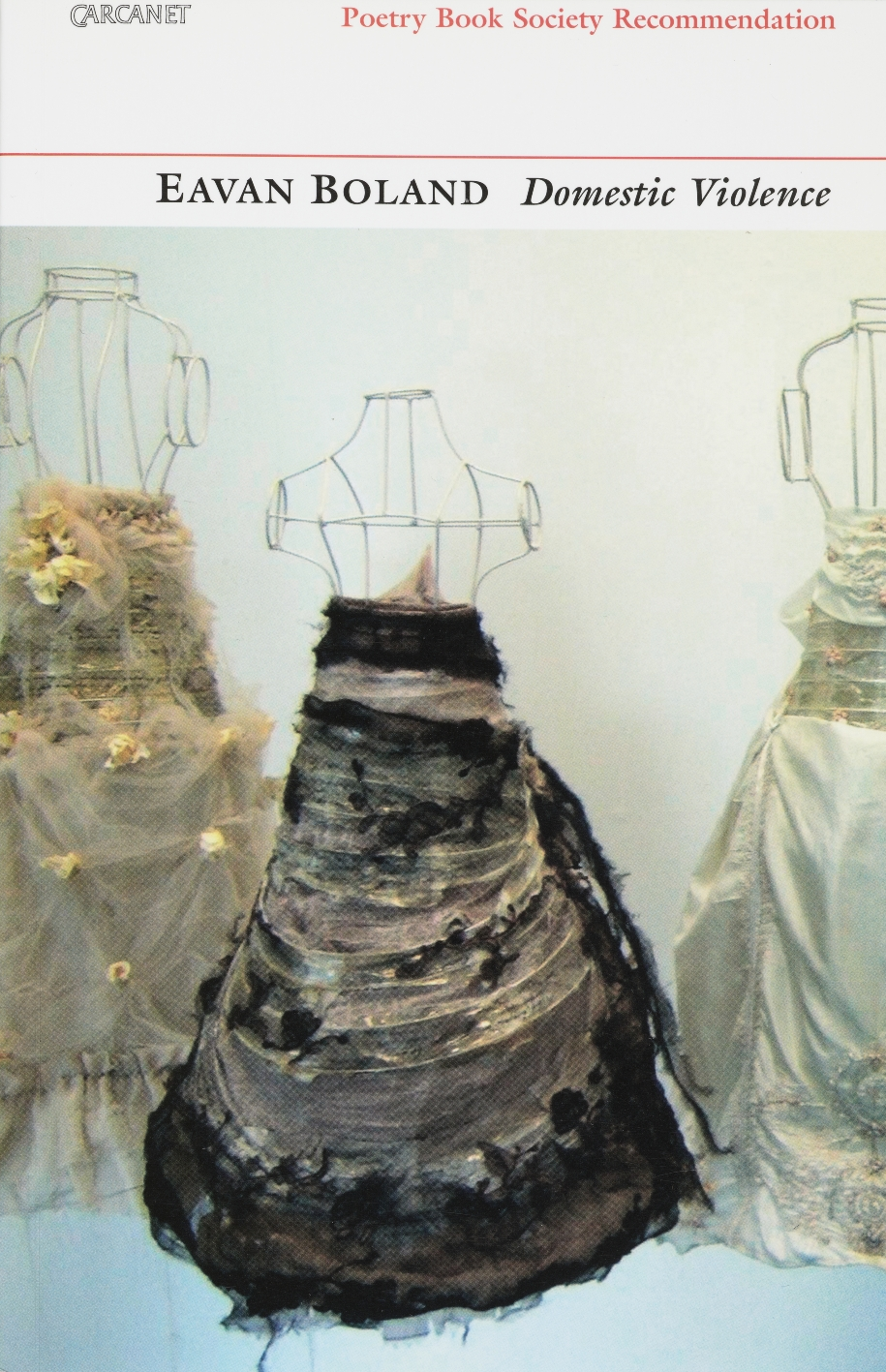 The Rylands Brief: Michael Schmidt In episode 1, Creative Arts Archivist at the John Rylands Research Institute and Library, Jessica Smith is in discussion with Carcanet Editor and University of Manchester Professor Michael Schmidt, talking about Eavan Boland’s Collection, Domestic Violence and her work and importance to Carcanet and the University Archives. This podcast features items from an exhibition which celebrates 50 years of Carcanet poetry press, an exhibition which was installed at Rylands in Manchester in mid-March 2020. The week that it was due to open, the Rylands closed as a result of the pandemic. The Rylands Brief is devised and written by John McAuliffe at the Centre for New Writing and Jessica Smith at the John Rylands Research Institute and Library. Thanks to Guillaume Dujat Des Allimes for sound tech.
The Rylands Brief: Michael Schmidt In episode 1, Creative Arts Archivist at the John Rylands Research Institute and Library, Jessica Smith is in discussion with Carcanet Editor and University of Manchester Professor Michael Schmidt, talking about Eavan Boland’s Collection, Domestic Violence and her work and importance to Carcanet and the University Archives. This podcast features items from an exhibition which celebrates 50 years of Carcanet poetry press, an exhibition which was installed at Rylands in Manchester in mid-March 2020. The week that it was due to open, the Rylands closed as a result of the pandemic. The Rylands Brief is devised and written by John McAuliffe at the Centre for New Writing and Jessica Smith at the John Rylands Research Institute and Library. Thanks to Guillaume Dujat Des Allimes for sound tech. -
Letter from Thomas Kinsella to Michael SchmidtLetter from Thomas Kinsella to Michael Schmidt regarding the bombing in Manchester, 15th June 1996.
-
The Bomb by Gillian ClarkeAnnotated typescript. Poem: "The Bomb" by Gillian Clarke. A section of the poem has been crossed out.
-
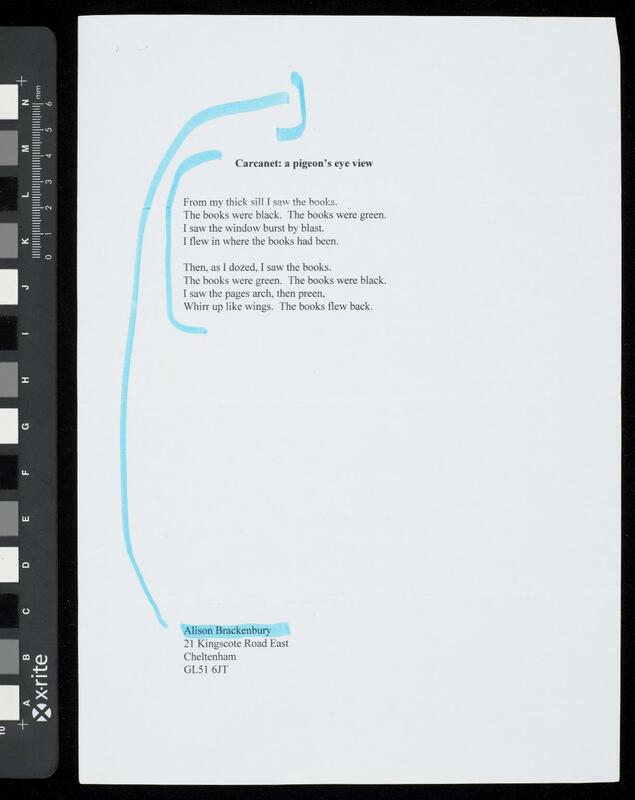 "Carcanet: a pigeon's eye view" by Alison Brackenbury Annotated typescript. Poem: "Carcanet: a pigeon's eye view" by Alison Brackenbury.
"Carcanet: a pigeon's eye view" by Alison Brackenbury Annotated typescript. Poem: "Carcanet: a pigeon's eye view" by Alison Brackenbury. -
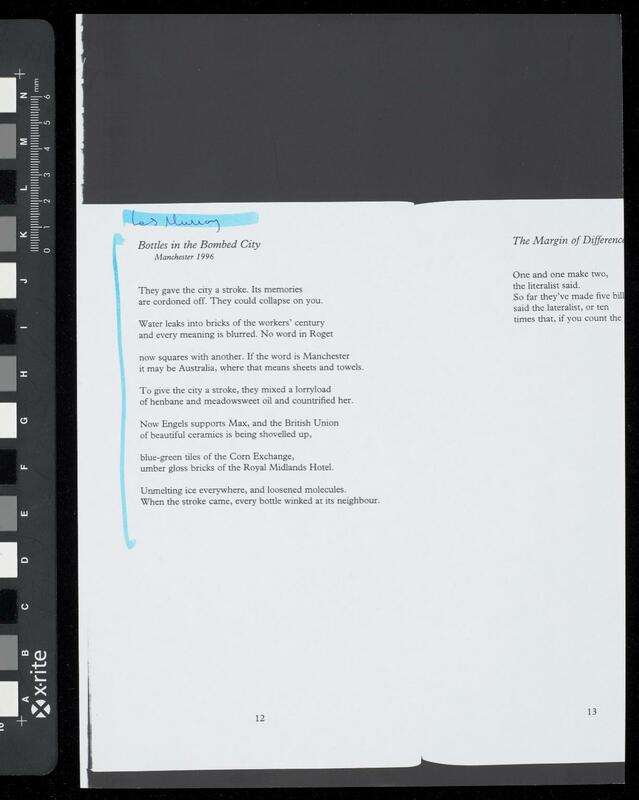 Bottles in the Bombed City Annotated typescript. Poem: "Bottles in the Bombed City, Manchester 1996" by Les Murray.
Bottles in the Bombed City Annotated typescript. Poem: "Bottles in the Bombed City, Manchester 1996" by Les Murray. -
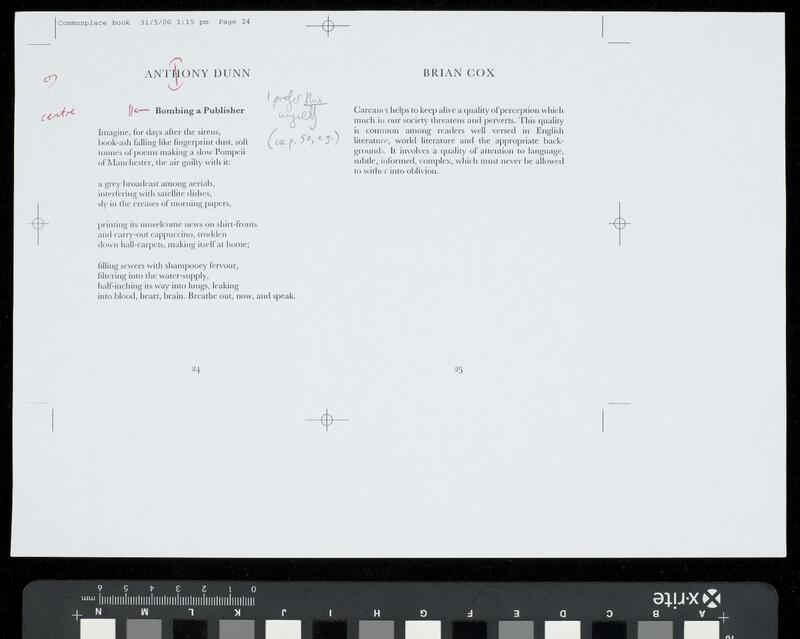 "Bombing a Publisher" by Antony Dunn Annotated typescript. Poem: "Bombing a Publisher" by Antony Dunn. Statement about Carcanet by Brian Cox, academic, poet, and educationalist.
"Bombing a Publisher" by Antony Dunn Annotated typescript. Poem: "Bombing a Publisher" by Antony Dunn. Statement about Carcanet by Brian Cox, academic, poet, and educationalist. -
 Message from President [Mary] Robinson Message from Mary Robinson; President of Ireland at the time of the bombing in Manchester, June 1996.
Message from President [Mary] Robinson Message from Mary Robinson; President of Ireland at the time of the bombing in Manchester, June 1996. -
 Tile from the Corn Exchange, Manchester Tile from the Corn Exchange, Manchester, England.
Tile from the Corn Exchange, Manchester Tile from the Corn Exchange, Manchester, England. -
 New Books And Stock List 1986 Carcanet's first design work by Stephen Raw.
New Books And Stock List 1986 Carcanet's first design work by Stephen Raw.

